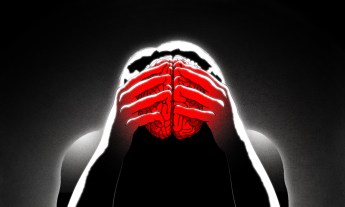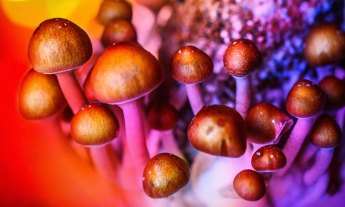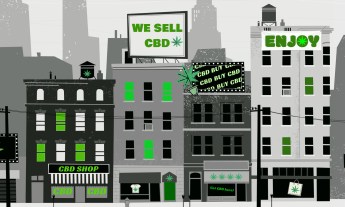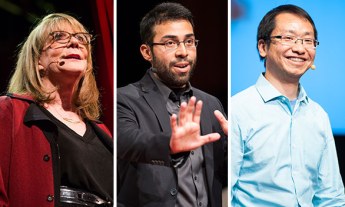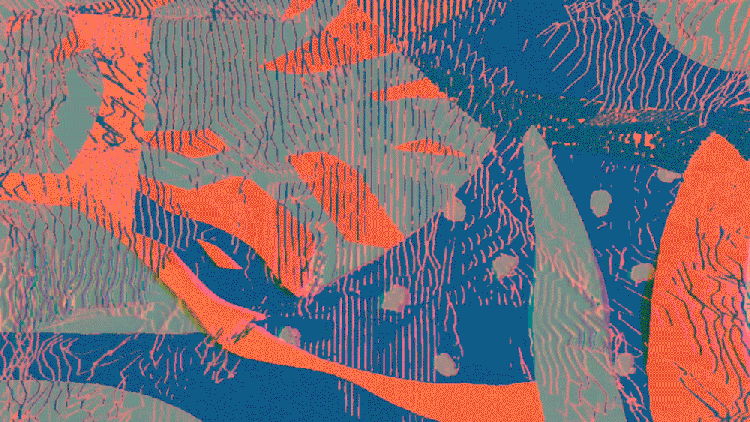
For decades, research into drugs like LSD, MDMA and psilocybin was banned. Now it’s time to shed our old fears and fully investigate their potential for treatments that could benefit people with PTSD, depression, substance abuse, and more, says psychedelics expert Rick Doblin.
Researcher Rick Doblin is the founder and executive director of the Multidisciplinary Association for Psychedelic Studies (MAPS), based in California. His life’s work is dedicated to removing restrictions on psychedelic substances — which include LSD, psilocybin or mushrooms, MDMA, and ayahuasca — and advocating for their research so they can be investigated as potential treatments for PTSD, depression, substance abuse, and more. He sat down after his talk at TED2019 in Vancouver, Canada, to discuss his work in greater detail.
TED: How much do researchers actually know about what happens in the brain under the influence of psychedelics? And how much does it differ depending on what psychedelic you’re taking?
Doblin: Quite a bit. This whole idea of the default mode network weakening, that doesn’t happen with MDMA — it’s more of a heart opener, more a fear reducer. The decrease in activity in the amygdala that MDMA does; LSD doesn’t do that and neither does psilocybin. So I’d say there are fundamental different mechanisms of action and also different therapeutic approaches.
In the work with classic psychedelics such as LSD and psilocybin, for example, what we’ve discovered is the mystical experience you can have — the depth of ego dissolution — is correlated with therapeutic outcomes. The more people go beyond themselves into this sort of state, the better they’re able to overcome their fear of death, overcome addiction, or overcome depression. But with MDMA, it’s not like that at all. We’re not trying to steer people to a mystical experience with MDMA, whereas with the other psychedelics we are.
TED: Because there was a ban on researching these substances for so long, there presumably hasn’t been the opportunity to give someone a dose and then put them in an MRI, right?
Doblin: The crackdown on research lasted pretty much until 2000, but we’ve had almost 20 years of a resurgence of psychedelic research since then. So there is a fair amount that’s known. People have done LSD, and there are studies putting them in fMRI scanners, spec scanners, and all different kinds of scanners. The same for ayahuasca, psilocybin and MDMA. Right now there’s over, for example, 5,000 papers in Medline if you search for “MDMA” or “ecstasy.” So there’s an enormous amount of information. How do you translate what that does to making people more effective as therapists? That’s a big question.
TED: You gave a great explanation in your talk of how MDMA is used to treat PTSD when people are working through specific traumatic events. With something like depression, it must be more challenging to treat.
Doblin: We have actually not done any studies with people who are depressed without having PTSD. It turns out that the people who have PTSD, most of them are also depressed and their depression goes down [when treated with MDMA].
But if we were to work with people who are depressed, it would be the same approach [as treating people with PTSD]. There are eight-hour therapy sessions; there’s preparation beforehand to get this therapeutic alliance going and then we just follow whatever people are talking about in their meandering way. The work that has been done with psilocybin for depression is something where they have been trying to steer people to this mystical experience.
The work with ketamine for depression is frustrating in some ways. It’s really helpful to a lot of people, but I think it would be more helpful if it were combined with some sort of psychotherapy. They’re thinking about it as just like another version of electroshock therapy. They even tell people “Don’t talk, I’m not interested in your visions or whatever happens.” It’s just to kind of reset your receptors, so they’re missing a big opportunity.
TED: Obviously, it’s a very specialized practice to deliver this kind of therapy. What do you think of recent reports that there’s an underground of practitioners offering therapy with psychedelics?
Doblin: I think the underground is important. It’s good. That’s where this came from, when everything was shut down. Even though MDMA was legal, it was starting to be used in the mid-1970s by underground therapists. They kept it quiet because they knew that if they made it public, the DEA would come in and criminalize it. Once it became ecstasy, that’s what happened. So I believe there are a lot of well-trained underground [practitioners] and there are a lot of charlatans as well. That’s the problem when anything’s underground. It’s like there’s pure MDMA or there’s pure LSD, but there’s a lot of adulterated drugs, too. That’s the whole problem that comes with prohibition. Some of our therapists were even trained by underground therapists, in addition to our organization’s training. I think they perform an important service and the most important thing is to say is the fact that there is such a demand for underground therapy means we should try to legitimize it as quickly as we can.
TED: Is there currently a way to tell when you approach such a therapist how legitimate they are, or where they’re getting the substances?
Doblin: You know, you have all these people going down to Peru and Brazil for ayahuasca and some end up with real healers; some end up with charlatans who just care about their money. Again, there’s just an enormous need. And so what it means is we need to bring it above ground as quickly as we can.
TED: Do you think the legalization of marijuana in various states in America will open the door for psychedelics, or do you think those are still regarded very separately?
Doblin: I think they are regarded very separately. If you talk about public opinion surveys, over 85 percent or so of people are sympathetic to medical marijuana; but when you talk about marijuana legalization, it’s down to 60 percent. You talk about legalization of MDMA, it’s down to 15 percent. You talk about LSD, it’s down to 8 percent or 9 percent. So I think the legalization of marijuana is going to help a lot by creating this climate where the drugs that were formerly illegal might not be as bad as people said they were. Also, [there’s an awareness] that the whole system of prohibition isn’t doing a lot of good and is doing a lot of counterproductive things.
TED: Today there’s more of a cultural conversation and a common acceptance of taking microdoses of psychedelics. How much research is there on microdosing?
Doblin: Not a whole lot, because the research is done by governments looking to say there’s drug abuse; pharmaceutical companies looking to develop drugs; or nonprofits. Microdosing is not drug abuse, so there’s not that much interest from the government’s point-of-view; there’s no interest in pharmaceutical companies in developing microdosing for drugs that are off-patent and in the public domain; and there has been a very minimal amount of research into microdosing. There’s a sort of informal data gathering that has been thousands of patients or people sending in reports. So the field is rich in anecdotal reports but poor in controlled studies.
TED: Are there any final things you’d like people to know about your work?
Doblin: One of the big things that we do is called the Zendo Project. A lot of young people do psychedelics at festivals like Burning Man and elsewhere, and they’re doing it for recreational purposes. They bring things up to the surface that they can’t handle, particularly if it’s difficult. Because they only want to have fun and then it’s difficult [so] they suppress it and then they end up worse off. The Zendo Project is psychedelic harm reduction at Burning Man and festivals all over the world where we bring in trained therapists. We had 250 volunteers at Burning Man in 2018, and therapists sat in different shifts for the whole week, 24 hours for 7 days. Over the last two years, we’ve helped over 1,000 people at Burning Man who have had difficult trips. So I think people should know we’re trying to show how our society can integrate these things in the post-prohibition world.
We’ve also done the first study of marijuana for PTSD. We got $2.1 million from the state of Colorado from marijuana taxes, and we worked with 76 veterans with chronic treatment-resistant PTSD. We’re working to analyze the data from that study. We want to do research eventually with ibogaine and ayahuasca to make them into medicines also.









